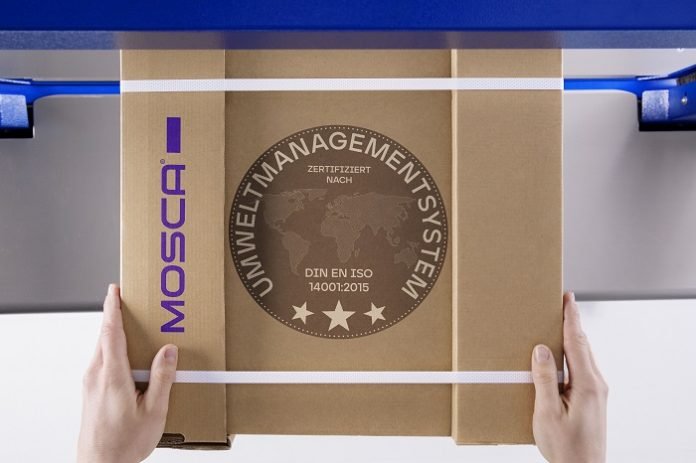From heating oil and raw material consumption to hazardous substances for its environmental management system, which has been certified according to ISO 14001 standards since August 2023, Mosca has identified and evaluated all aspects of environmental impact at the company’s Waldbrunn and Muckental sites. In line with the certification, Mosca is committed to continuously improving its environmental management system and is already focusing on expanding the measures.
As part of the certification of an environmental management system according to ISO 14001, companies assess their environmental impact, stringently develop and initiate environmental targets, and commit to an annual review by an official certification authority. Mosca started developing its comprehensive environmental policy and building up its management system in 2016. In doing so, the company has gained from the numerous overlaps with its previous quality and energy management systems. “Our objective from the very beginning was to create an integrated system that will help us monitor and continuously improve all processes. The system enables us to look at the entire life cycle of our products – which also benefits our customers,” explains Florian Weiß, environmental management officer at Mosca.
Certification requires a detailed inventory of all impacts
Before the Mosca environmental management system was certified in August 2023, Weiß and his team developed a detailed grid that enabled them to analyse all environmental aspects and the associated impacts. Mosca then evaluated and categorized these based on factors such as total consumption and obligations resulting from legal requirements or stakeholder interests. Florian Weiß: “This audit made clear that we were already in a good position regarding key aspects, like the consumption of heating oil and raw materials or recycling.”
To minimize environmental impact, Mosca installed a local heating network prior to certification and reduced the number of boilers used for heat generation from eleven to just two. This enabled the company to significantly improve heating efficiency without interruptions in heat supply. At the same time, Mosca increased the proportion of recycled granulate used in polypropylene strap production to more than 50%, reduced its waste and its weight without sacrificing quality, and thus managed to minimize raw material and energy consumption. The company is also working to reduce the impact in categories with less of a need for action. For example, six hazardous substances used in cleaning, assembly and cooling lubricants have been replaced with alternatives that are less dangerous for employees and the environment. Florian Weiß explains: “We have established standardized parameters for all categories. These figures are adjusted to account for weather or other external factors and their development is now reviewed every year by an independent, external body.”
Further concepts in the pipeline
Prior to the next audit, Weiß and his team have plans to expand the environmental management system and are currently working on several new measures. For example, as suggested by employees, they are developing a new waste concept to increase the proportion of recycled waste materials. They are also reducing the number of air compressors deployed in production, using the remaining compressors more efficiently, and feeding the excess heat from the machinery into the on-site heating network. “Our process is by no means finished with certification – quite the opposite,” says Weiß. We do not only want to handle resources as carefully and efficiently as possible in our own day-to-day operations. We also intend to show how interfaces between energy, environmental and sustainability management can be used to look beyond the factory walls and gradually make an entire company more sustainable.”












